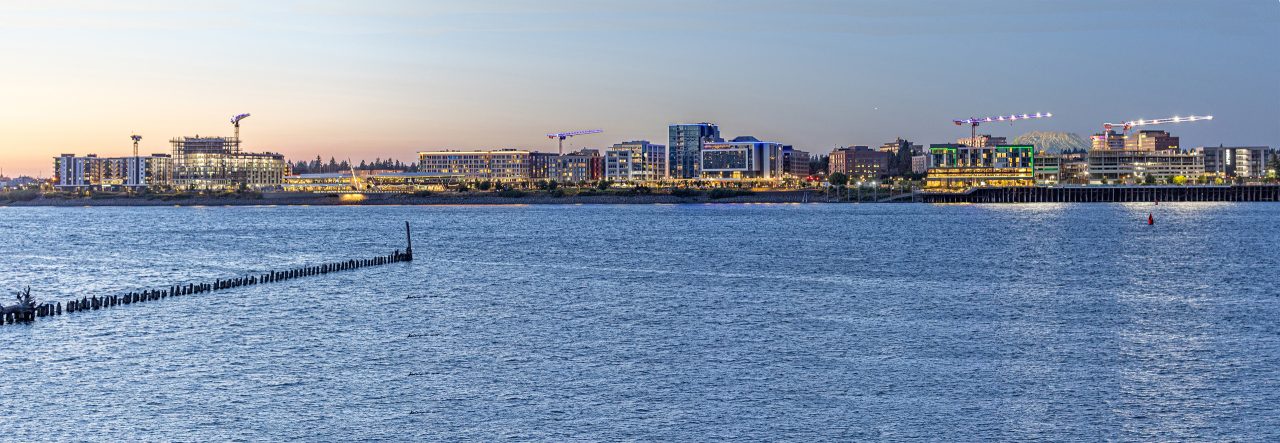Gentrification has become a dirty word in some circles. Some see only the negatives and to be fair there are often growing pains and some negative factors when an area becomes gentrified.
So what is Gentrification anyway? Miriam Webster defines it as:
“the process of repairing and rebuilding homes and businesses in a deteriorating area (such as an urban neighborhood) accompanied by an influx of middle-class or affluent people and that often results in the displacement of earlier, usually poorer residents”
So the biggest problem that people have with the process, is when poorer people are displaced. When older buildings are knocked down and residents are forced to move then can’t afford to move back because the new buildings are too expensive. In many cases this actually happens. If local governments actually move people out of an area to knock down their apartment buildings and then don’t have a plan to help those people find affordable replacement housing, that tends to make people angry, and understandably so.
Vancouver’s gentrification actually started more than 20 years ago. And what’s interesting is that few if any residents have been displaced. Huh? In the mid 1990s Vancouver began an ambitious redevelopment of the area in and around Esther Short Park. What was there before? Mainly the remnants of the abandoned Lucky Lager Brewery complex which took up several city blocks in the area. The only people displaced were the drug dealers, prostitutes, and criminals. I don’t feel bad when those people are displaced, do you?
Vancouver’s waterfront is a continuation of that robust 25 year redevelopment that continues to this day. What was on the site of today’s waterfront back in the day? Wait for it… an abandoned Boise Cascade Paper facility. Once again no one was displaced save possibly for some homeless people that may or may not have been camping in the area. The city of Vancouver at great expense, has expanded the homeless transitional facilities and does an admirable job dealing with this important and difficult societal problem.
So in the case of the “gentrification” of Downtown and the Waterfront, the primary negative has been largely avoided and all of the positives remain for all of us to enjoy. This is gentrification done right.
Now there are secondary negatives associated with the development happening now in Vancouver’s core. The improvements are drawing in new affluent residents and businesses that are very nice. Some landlords in the nearby older homes and apartments are taking advantage of increased demand and some people are feeling the pinch of higher rents. This is a problem that is in the process of working itself out.
Our neighbor to the south had skyrocketing rents and the city of Portland approved some 15,000 new apartment units across the city. Most of those are now built and occupied. Lo and behold the median rent in Portland is down several hundred dollars a month and last year they dropped below our local median rent. Some of our local pressure was coming from Portland. The new apartments that went up in Portland were mostly more expensive units in the Pearl, along Interstate Avenue and the MAX line, in the Lloyd District, and out in both Hollywood and Gateway. These new nicer units drew people away from overpriced older and lesser quality apartments forcing those landlords to reduce rents to keep units occupied.
A very similar scenario is playing out right here. Many people complain that these new apartments are too expensive. But if we are all honest about it, we should ask the question, “we don’t really expect apartments in a beautiful new tower right on the shores of the mighty Columbia to be as cheap as a 100 year old building in Rose Village, do we?” The landlords that have been gouging for the last few years have been doing so because we have had a massive shortage of rental units. That shortage is quickly being alleviated and rents will come down as a result.
It is fair to note that Vancouver’s gentrification was mostly done through redevelopment of unused industrial properties rezoned to support retail, commercial, and residential uses. Few people were displaced and most people can enjoy the benefits of a much nicer, safer, and better Downtown as a result.
So sometimes gentrification is a dirty word and sometimes the “G” word just means “Great” and that seems to apply in our case.
#Gentrification
